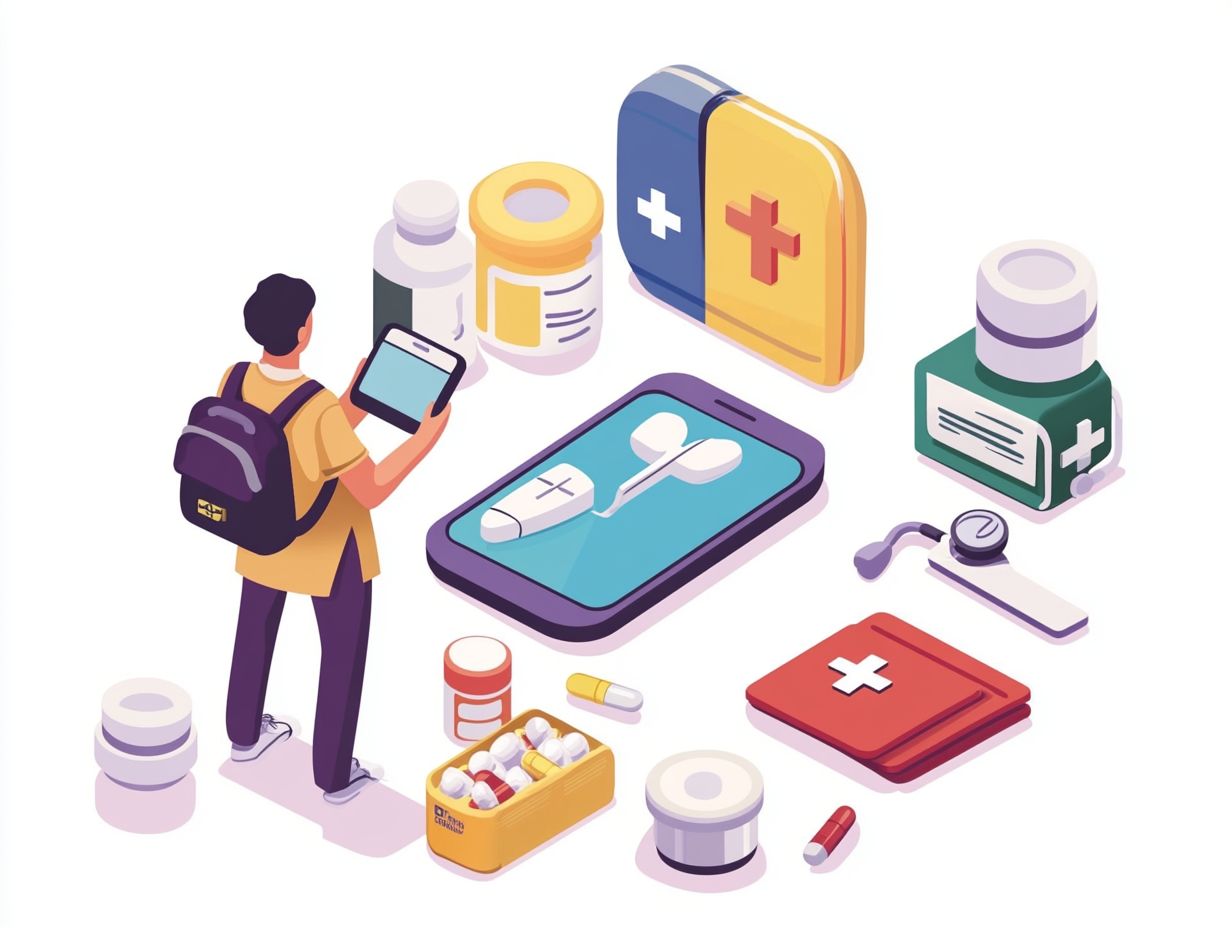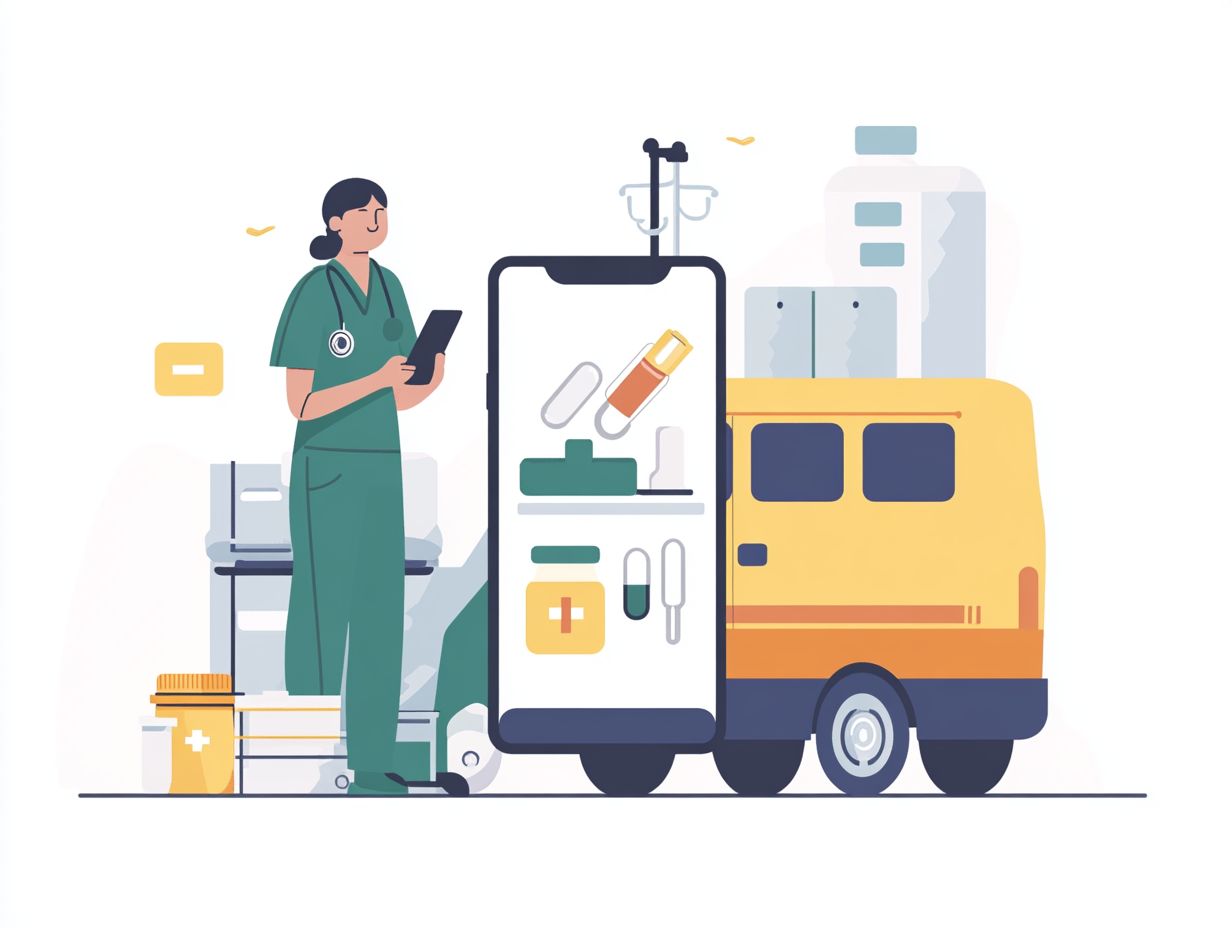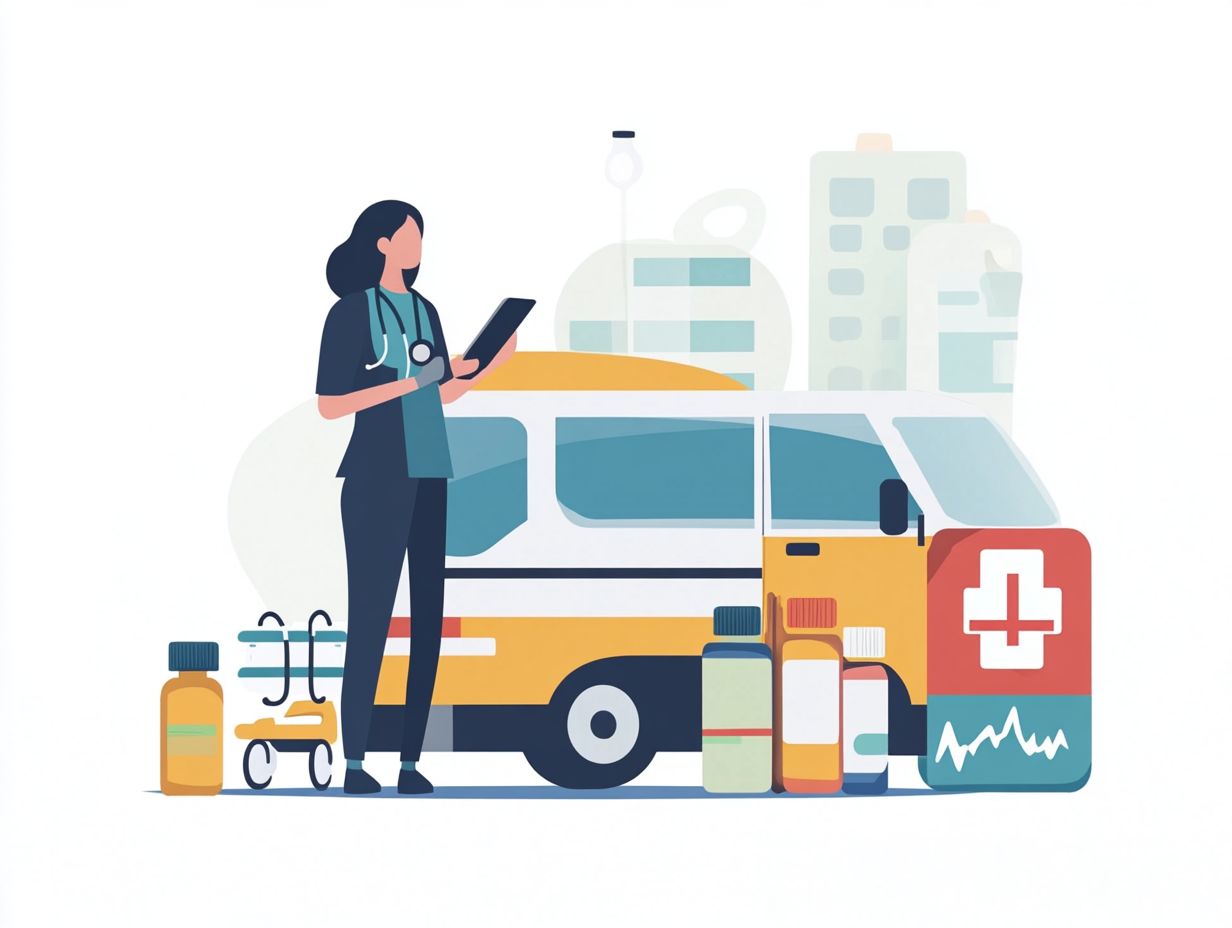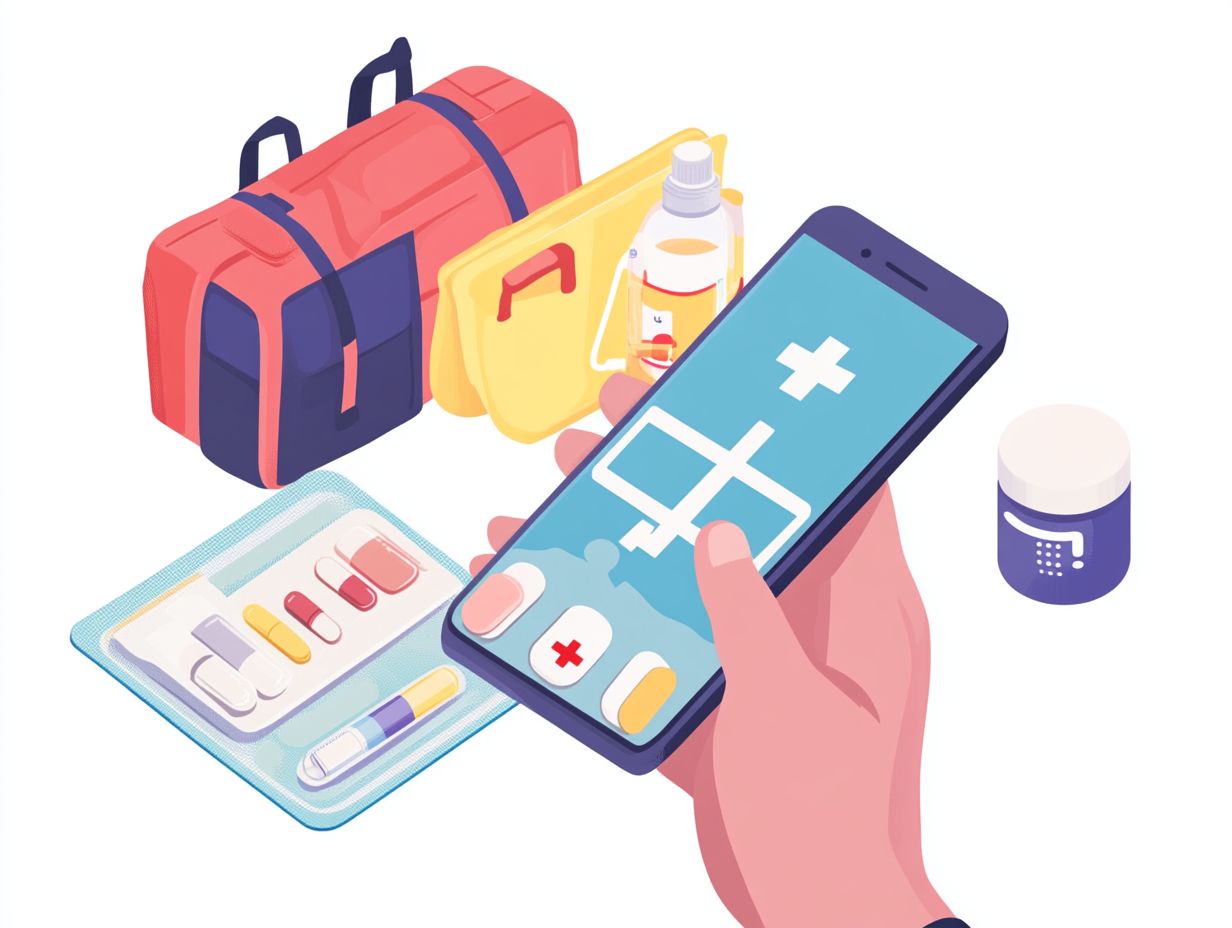Accessing reliable transportation services is crucial for individuals undergoing medical treatments, ensuring they arrive on time for essential appointments like chemotherapy and dialysis. For those enrolled in Medicaid, transportation services, such as those offered through Medicaid services and the NET Program, are vital for maintaining regular healthcare visits, improving adherence to medical schedules, and enhancing treatment outcomes.
A variety of transportation options are available, including:
- Public transit, provided by Regional Transit Authorities and supported by programs like the Gas Reimbursement Program
- Ride-sharing
- Taxis
- Shuttles
- Private car services
Each offers unique benefits such as affordability, flexibility, and personalized service, accommodating different needs and preferences.
When selecting a transportation service, consider factors like cost, reliability, insurance coverage, accessibility, and transportation eligibility, especially for individuals with disabilities or those needing Medicaid services. Alternative solutions, such as telemedicine and community volunteer services, provide additional support for those without access to traditional transport, ensuring they receive necessary medical care without barriers.
Key Takeaways:
Understanding the Need for Transportation Services

The need for transportation services is vital for individuals requiring regular access to medical care, particularly for those enrolled in Medicaid or the ARKids First program. Members can schedule a ride through transportation brokers and benefit from the transportation program tailored to their needs.
Transportation services ensure that patients can attend doctor appointments and receive essential treatments like chemotherapy, radiation therapy, and dialysis, without delay, using the transportation benefit provided by their Medicaid health plan.
Reliable scheduling of rides supports adherence to medical appointments, making transportation services essential for healthcare access.
Why Transportation is Important for Medical Treatments
Transportation is important for medical treatments because it ensures patients reach healthcare facilities on time for essential therapies like chemotherapy and radiation.
Reliable transport affects treatment outcomes by preventing delays that can lead to disease progression and complications.
Access to transportation is crucial for maintaining treatment schedules and improving health outcomes.
Types of Transportation Services Available
Transportation services can be categorized into:
- Public transit
- Ride-sharing
- Taxis
- Shuttles
- Private car services
Public transit includes buses and trains, providing regular routes and schedules.
Ride-sharing services, like Uber and Lyft, offer flexible, on-demand rides.
Taxis provide immediate travel, usually hailed on the street or via a call.
Shuttles operate on set routes or for specific groups, often used for airport transfers.
Private car services offer personalized, pre-arranged transport with professional drivers.
Public Transportation Options
Public transportation options include buses, trains, and subways that provide affordable and accessible travel for individuals, including those eligible for Medicaid. Fixed schedules and mobility training programs help navigate these options, as offered by organizations like the International Transportation Learning Center.
Public transit systems offer programs for individuals needing assistance to access medical appointments.
Mobility training helps users navigate these options, increasing independence and improving health outcomes.
Private Transportation Services
Private transportation services provide customized rides for individuals needing reliable transport, especially for medical appointments. Experienced drivers equipped with driver identification ensure safety and timely service, even in urgent medical situations.
These services offer convenience and prioritize passenger needs, ensuring comfort and security.
Private transportation includes wheelchair access and flexible scheduling for last-minute appointments.
Experienced drivers ensure timely arrivals by navigating the quickest routes.
Factors to Consider When Choosing Transportation Services

When choosing transportation services, consider factors such as cost, reliability, insurance coverage, accessibility, and service availability.
-
Cost impacts budget; evaluate pricing and potential hidden fees.
-
Reliability ensures timely arrival and safe travel.
-
Insurance coverage protects against accidents or losses.
-
Accessibility is crucial for individuals with disabilities or Medicaid beneficiaries needing medical care.
-
Service availability determines the range of locations and times transport is offered.
Cost and Insurance Coverage
Non-emergency transportation costs can affect patients’ ability to attend medical appointments, making insurance coverage and gas reimbursement programs essential.
Medicaid services offer assistance to reduce transportation costs, ensuring access to healthcare without financial strain.
Gas reimbursement programs help cover the expenses for those using personal vehicles for medical visits.
Accessibility and Accommodations
Accessibility and accommodations ensure that individuals with varying needs can use transportation services for medical appointments effectively.
Features like ramps, secure seating, and trained staff are incorporated to address challenges faced by passengers using wheelchairs or requiring assistance.
These adaptations enable barrier-free access to healthcare services.
Preparing for Transportation to and from Treatments
Preparing for transportation to and from medical treatments requires arranging travel in advance, confirming appointment times, and coordinating with transportation providers for timely pickup and drop-off.
Consider accessibility needs and communicate them to transport services for a seamless experience.
What to Bring and How to Plan Ahead
When preparing for transportation to medical appointments, bring identification, insurance cards, a Medicaid ID, and necessary medical paperwork such as referral letters or test results. Plan for potential ride cancellations and reschedule if necessary.
Plan ahead by creating a checklist, confirming your appointment a day in advance, and checking ride availability.
Ensure transportation is secured, whether using public transport, a personal vehicle, or rideshare services, to reduce anxiety and facilitate a focused visit with healthcare providers.
Alternative Methods of Transportation for Treatments

Alternative methods of transportation for treatments include telemedicine and virtual appointments, which allow patients to receive care remotely via video calls or online consultations.
Community resources, such as local non-profits, offer transportation services for medical appointments.
- Volunteer services, including ridesharing programs, provide free or low-cost rides to medical facilities.
These transportation alternatives ensure that individuals without access to traditional transportation can still receive necessary treatments.
Telemedicine and Virtual Appointments
Telemedicine and virtual appointments provide medical care through video conferencing and online consultations, reducing the need for physical travel, especially when traveling outside the region. These services complement existing transportation options, ensuring access to healthcare without geographic limitations.
These technologies enable patients to access healthcare professionals remotely, eliminating the need for travel to medical facilities.
Telemedicine allows patients to receive timely advice and diagnoses from home, improving access to medical services.
Community Support and Volunteer Services
Community support and volunteer services provide transportation assistance for individuals attending medical appointments, especially those with mobility challenges. Councils on Aging and organizations like AARP mobilize volunteer drivers to offer these services, addressing transportation challenges faced by veterans and other community members.
Organizations like local churches and nonprofits mobilize volunteers to drive, ensuring access to medical care.
This support system bridges gaps left by conventional transport options, offering reliable and safe transportation.
Frequently Asked Questions
What are transportation services for treatments?
Transportation services for treatments are specialized transportation options for individuals who need to travel to medical facilities for appointments, procedures, or treatments.
What types of transportation services for treatments are available?

There are various types of transportation services for treatments, such as ambulances, medical taxis, van services, and non-medical transportation options.
How can I find transportation services for treatments?
You can find transportation services for treatments by researching online, contacting your healthcare provider, or reaching out to local transportation companies that offer medical transportation options.
What factors should I consider when choosing transportation services for treatments?
Some factors to consider when choosing transportation services for treatments include cost, availability, reliability, safety, and any specific medical needs you may have.
Are transportation services for treatments covered by insurance?
In some cases, transportation services for treatments may be covered by insurance, such as Medicare or Medicaid. It is important to check with your insurance provider to see if you are eligible for coverage.
What if I have a disability or mobility issue?
If you have a disability or mobility issue, it is important to choose a transportation service for treatments that can accommodate your needs. Some options include wheelchair accessible vans or medical taxis with trained staff to assist with mobility challenges.





